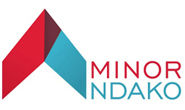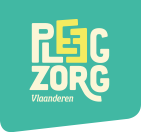-
Who We Are
WHO WE AREThe International Organization for Migration (IOM) is part of the United Nations System as the leading inter-governmental organization promoting since 1951 humane and orderly migration for the benefit of all, with 175 member states and a presence in over 100 countries. IOM has had a presence in Belgium since 1973.
About
About
IOM Global
IOM Global
-
Our Work
Our WorkAs the leading inter-governmental organization promoting since 1951 humane and orderly migration, IOM plays a key role to support the achievement of the 2030 Agenda through different areas of intervention that connect both humanitarian assistance and sustainable development. IOM in Belgium and Luxembourg provides a comprehensive response to the humanitarian needs of migrants, returnees and host communities.
Cross-cutting (Global)
Cross-cutting (Global)
- Data and Resources
- Take Action
- 2030 Agenda
Almost 200,000 unaccompanied migrant children sought asylum in Europe since the surge in arrivals of refugees and migrants in 2015. The Fostering Across Borders project aimed to improve the quality and expand the availability of family-based care for unaccompanied migrant children in six EU Member States: Austria, Belgium, Greece, Luxembourg, Poland and the United Kingdom.
A foster carer training programme was developed and professionals (including foster carers) were trained on and supported to better protect and meet the needs of these children.
The EU Agency for Fundamental Rights recognised that family-based care is better than large-scale residences to provide children with a nurturing environment and address their individual needs. The agency found that fewer children go missing from foster care compared to reception centres and institutions, while highlighting that training for professionals remains a high priority to ensure the highest standards of care and protection for these children.
Fostering Across Borders builds on the output of the ALFACA (Alternative Family Care) project, particularly its good practice manual and e-learning package for professional and the experience working with reception families and the unaccompanied children living with them.
FAB was funded by the Rights, Equality and Citizenship Programme of the European Union (2014-2020), co-funded by Fedasil (BE), the Croix Rouge Luxembourgeoise (LUX), and Coram CCLC (UK), and led by IOM. It ran from January 2018 to September 2019. In Belgium, the project partners were Mentor-Escale and Minor-Ndako.
- FAB Activities in Luxembourg
-
In Luxembourg, in 2018, a training manual, a training guide and nine supporting handouts were developed for the attention of professionals and family-based care providers fostering UMC. The manual and guide can be found here, as well as the mapping reports of the other implementing countries.
On 21 January 2019, a second inter-stakeholders’ meeting was organized at the Luxembourguish Red Cross premises. The meeting gathered representatives of the Luxembourguish authorities (the Ministry of Foreign Affairs, the Ministry of Family and Integration and the Ministry of National Education, Youth and Childhood) as well as of the Red Cross, Caritas, and different reception centers. The meeting sought to provide a project update and to present the training tool kit to all stakeholders in an effort to collect their feedback and streamline their input into the concerned output.
The toolkit underwent an adaptation phase throughout February and March and was piloted in April during the Train the Trainer session delivered by IOM staff to social workers within the Luxembourguish Red Cross’ Foster Placement Unit.
A video is also now available, with the aim to promote family-based care for UMC, and hopefully, will help in recruiting new foster carers as well.
On the 10th of September, a closing conference was held in Brussels, during which the participating offices of IOM together with implementing partners and stakeholders shared their experiences, best practices and ways forward.
- FAB Activities in Belgium
-
Throughout the project, partners and IOM consulted with children and young people to reflect children’s views of family-based care in all the FAB materials, following a child-centred approach.
- Mapping of training gaps and needs for professionals and family-based carers.
IOM Belgium, together with the implementing partners Minor-Ndako and Mentor-Escale, finalized the Mapping of existing training for family-based care (FBC) providers and Mapping of existing training for professionals), and conducted needs assessment and analysis of results in a report.
- Development and delivery of Train-the-trainers sessions to professionals and foster carers to enhance their ability to care for unaccompanied migrant children.
The FAB Belgium team revised and adapted the FAB training packages to fit the Belgian local context and both professionals and experienced foster carers were trained during 4 Train-the-trainers (ToT) sessions across the country.
- Produced a 2 days foster carer training programme “Caring for unaccompanied migrant children – A foster carer training manual”. Available online (training manuals and training powerpoint slides in both FR and NL)
The Belgian training package was developed following the above activities and can be used by all Belgian stakeholders. The manual also incorporated the feedback from a total of 221 respondents to two surveys for professionals supporting UMC and/or FBC providers, one for the French and German-speaking communities and one for the Dutch-speaking community.
- Results and Impact
-
In the French speaking population of Belgium, no training material specialising in UMC and targeting foster carers had existed before. Mentor Escale report that the training manual is a complete support tool both practically (in terms of knowing procedures, the roles of actors) and at the care and psychosocial level (providing specialised care to UMC). The modular approach has made the manual digestible and scalable. The FAB project and the manual is in line with Mentor Escale’s existing approach, but FAB has allowed Mentor Escale to create a fully trained team around the UMC that helps the UMC grow and be cared for. Informal feedback shows the Training of Trainer sessions with the families was successful and appreciated by the families.
Outreach for recruitment and retention of family-based carers for UMCs
Information sessions: In order to recruit new foster carers, 43 stakeholders were reached in two information sessions held in Brussels (with Minor-Ndako) and Gent (with Pleegzorg Vlaanderen).
Awareness raising materials available in Dutch, English, French, German, (and also Greek, Polish and Welsch).
- Project one-pager (information sheet)
- Short (+-1min20) for social media and long video (+8 min) as a training tool, + Video info-sheet.
- Country of Origin information leaflets: Afghanistan, Eritrea, Iraq, Sudan & Vietnam
- Information leaflets for current and prospective family-based carers. Available in Dutch, English, French, German.
For more information on the overall FAB activities, resources, and downloadable materials for all participation countries, please go to the project website on https://eea.iom.int/fostering-across-borders
National stakeholders meeting for enhanced stakeholder engagement and cross fertilisation of ideas
National Stakeholders meetings took place at the project launch, mid-term and closing, which gathered stakeholders working in the field of child protection and/or migration to bring specific expertise together and exchange of experiences and best practices between professionals of the two communities.
In addition, FAB was presented to EU Member State representatives at the informal expert group meeting on the rights of the child and the projection of children in migration. The meeting was held in Brussels on 4th June 2019. A site visit to FAB implementing partner Minor-Ndako took place the day before the experts’ groups meeting. This visit fed discussions on alternative care models at the experts meeting, which provided an excellent platform for discussion and exchanges on foster care models and training for foster carers.
The final project conference took place on the 10th of September 2019 in Brussels where a final project report for EU stakeholders, which provides key findings and recommendations in English, was presented and distributed.
- Contact
-
For more information, please contact Charlotte CRAHAY, IOM Belgium FAB Project Officer (ccrahay@iom.int).
- Partners
-
.png)




- Funding
-
